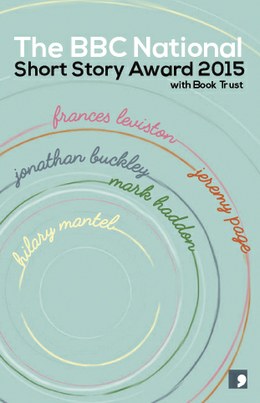Part 1 of this diary is available here.
Tuesday 13th
10.00 am: My first history talk of the festival — Frank McLynn on Marcus Aurelius. I don’t know much about Roman history, so I don’t think I got the most out of it that I could have; but McLynn was interesting and engaging nonetheless.
12.00: Today’s Guest Director is Alice Roberts, and spotting her for my game of ‘Guest Director bingo’ will be easy, as I’m attending two of her events. The first of these is called ‘Journey into Colour’, with a panel consisting of Roberts, the writer Victoria Finlay (who wrote a book on colour which I actually bought several years ago, but have never got around to reading) and Mark Midownik, a materials scientist. Finlay was enthusiastic, and her talk fascinating; but I felt that Midownik was not a good speaker, and his contribution on the science of colour was rather dry. I really should read that book of Finlay’s, though.
4.00 pm: My second of Alice Roberts’s events — geneticist Stephen Oppenheimer on the story of human migration. An interesting subject but, unfortunately, the talk was a little too technical for me.
6.00 pm: Ronni Ancona and Alistair McGowan on football — specifically, on Ancona’s attempts to wean McGowan off it. The readings from their book were excellent, and the whole hour was hilarious.
8.45 pm: My last event of the day, and this time it’s a ‘proper’ author — Sarah Waters. I’ve never read her work, but do have a copy of The Little Stranger, which I’ve been meaning to read. Interesting stuff, though I stll haven’t got around to reading the book.
Wednesday 14th
10.00 am: Matthew Rice on ‘The Language of Architecture’. I took a chance on this event, and am so glad I did. Rice was hilarious, and gave a brilliant introduction to a subject I’m not well-versed in.
2.00 pm: Sara Wheeler on the Arctic. This was a combined history and travelogue; interesting enough, but perhaps too ‘bitty’.
4.00 pm: Another hsitory talk — Jenny Uglow on Charles II. Uglow illuminated a part of history I never really studied in detail, so I was pleased to go to this.
5.15 pm: Today’s Guest Director is Monica Ali, whom I was due to see now, alongside another novelist, Geoff Dyer. Unfortunately, however, Ali is unable to attend owing to illness, so this event is Dyer on his own. I’d never heard of him prior to this, but he was a highly entertaining interviewee, and reader and he joins my list of ‘writers I must investigate’.
8.45 pm: I was due to see Keith Floyd at this point, but of course he sadly passed away last month. I raise a glass in his honour.
Thursday 15th
10.00 am: Today starts with my best history talk of the Festival — David Horspool on English rebellions throughout history. He’s a great speaker and storyteller, and shows the value of taking a broad historical view of one topic.
4.00 pm: From history to historical fiction, with Tracy Chevalier and Hilary Mantel. I’ve already seen the latter in my first event, of course, and she’s engaging once again. I’m very intrigued by the sound of Chevalier’s latest novel, about the early 19th century paleontologist Mary Anning. The TBR pile grows ever larger…
7.0o pm: Travel writer Christopher Somerville on his new book of walks around Britain. Fascinating stuff, as Somerville covers areas that don’t necessarily come to mind as fruitful areas for walks, such as Canvey Island and the circular walking routes around London. He also relates tales of a walk across Crete in the winter for his 50th birthday, and walking to the very northernmost point of the British Isles for his 60th. Somerville becomes another writer I should read.
8.45 pm: A performance of Arthur Conan Doyle’s The Lost World by the Paper Cinema and Kieron Maguire. How to describe this? They film cut-out paper puppets and project the results on to a screen, while Maguire provides a live soundtrack. It was good, but I think I’d have enjoyed it more if I knew the story better.
9.30 pm: I still haven’t spotted today’s Guest Director, Rageh Omaar. I know he is in the middle of a talk now, and I could hang around the signing tent for half an hour until he comes in — but I’m not really that bothered, am I? I decide that I’m not, and head off back to the hotel instead.
Part 3 of the diary coming soon…
Like this:
Like Loading...

 Anya Lipska, Where the Devil Can’t Go (2013). At last, a mainstream UK publication for the crime novel set among East London’s Polish community that I
Anya Lipska, Where the Devil Can’t Go (2013). At last, a mainstream UK publication for the crime novel set among East London’s Polish community that I 
Recent Comments